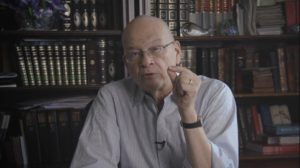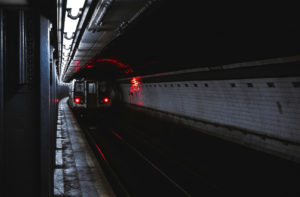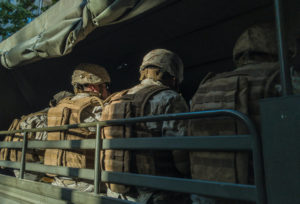I jumped out of bed and followed him out the French doors to our terrace on the 24th floor. Thick black smoke was rolling out of the North Tower, just six blocks away. Emergency vehicles raced down the West Side Highway—lights flashing, sirens blaring. I looked down onto the street. People were running in all directions, some directly into traffic.
Suddenly, something caught my eye. I saw a plane flying low—too low. With a deafening roar, the jet swooped like a hawk and banked to the left, its nose pointed straight at the South Tower. We felt, rather than saw, the impact. One moment we were standing on the terrace, and then I woke up on the living room floor.
Brian yelled, “Christina, we have to get out of here. We’re being attacked!” Brian grabbed our dog Gabriel and we raced to the stairwell.
After galloping down the 24 flights, I opened the exit door to the street. Only then did I realize I was barefoot and wearing my nightgown. My husband gave me his socks to protect my feet, and we joined the crowds running away from the burning buildings.
Hopscotching through traffic, we made our way to Battery Park. But not long after we found a bench to rest on, the ground began to shake violently, and I heard a rumble like a freight train. “Brian, a tower is coming down!”
A communal scream rose from the park. I froze in terror as a mass of something hit me in the face. It felt like someone had thrown a bucket of sticky sand over me; gunk filled my nose and mouth, covered my pajamas, and coated every pore of unprotected skin.
I opened my eyes slowly, trying to protect them from whatever was on my eyelids. Brian hadn’t moved, but he looked completely different—like an upright mummy. “What is this? Where’d it come from?” I sputtered, spitting out gunk.
“I think it’s the tower,” Brian said.
Another shriek emanated from the crowd. The wind had changed direction and was blowing thick clouds of smoke directly into Battery Park. Pandemonium ensued as people tried to escape this new threat, but we were trapped at the end of the island. We took cover by an old fort and hugged its stone wall, trying to catch our breath. Gabriel flopped on the ground exhausted. Every time I tried to take a deep breath, I inhaled soot and the sickening scent of burning electrical wiring. I couldn’t block out the shrieks and cries of people who believed they were about to die, and I couldn’t ignore the people running aimlessly all around me.
I began my own silent entreaty. Lord, I’m sorry I’ve spent lots of time doing life without you. That I haven’t been serious in my relationship with you. I opened my eyes. My dream city was now a hellscape.
As far as I could see, Brian and I were the only ones standing still. Nothing in our eighteen months of marriage had prepared us for this madness. We turned toward each other. “Brian, is this it? Are we gonna die?” He hesitated, then looked me in the eye. “I don’t know. Maybe,” he said sadly. As we stood there in the shadow of the fort, Brian took my hands and began praying aloud: “Our Father, who art in heaven, hallowed be thy name, thy kingdom come, thy will be done. . . .” As he recited the Lord’s Prayer, I began my own silent entreaty. Lord, I’m sorry I’ve spent lots of time doing life without you. That I haven’t been serious in my relationship with you. I opened my eyes. My dream city was now a hellscape.
I’d moved to New York City in 1993 as a 23 year old, determined to perform on the Broadway stage. Everything I’d brought to set up my new life was crammed into two suitcases, including a cherished cross-stitched sign my childhood friend, Cindy, had made for me. It read, “There’s a simple truth that’s very plain to see. Whatever I become, is simply up to me.” I’d grown up in the church, and was even baptized at age 11. But by the time I met Brian in 1999, my faith had taken not just a back seat, but was occupying a corner of the trunk. It was weak, untested, and compartmentalized. God was a well-qualified counselor for personal struggles, but I had spent years proving to myself and everyone else that I had it all under control. My success or failure was truly all up to me.
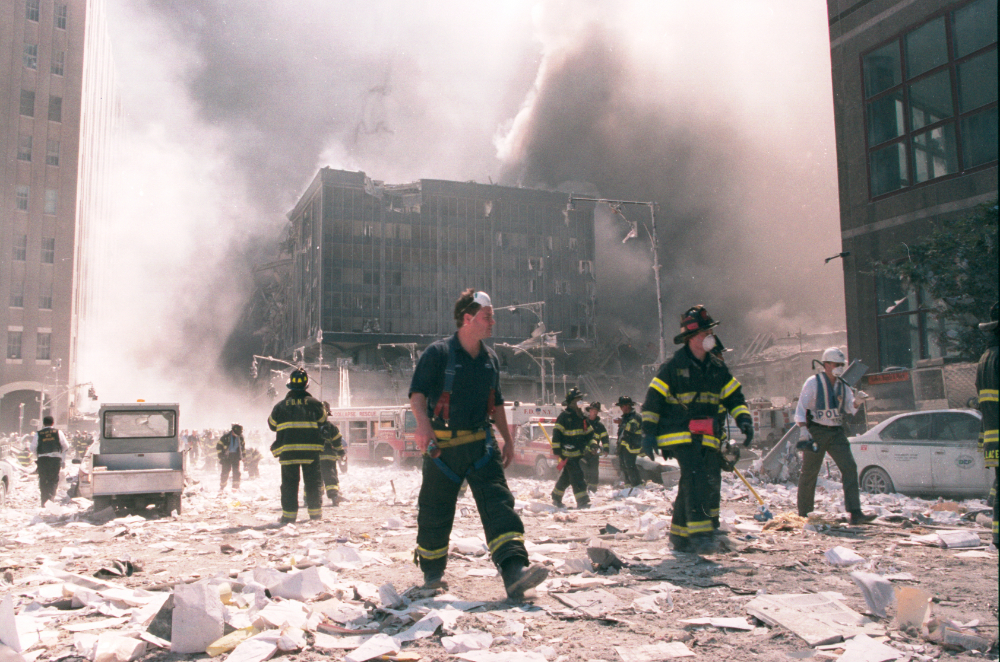
But on the day of the attacks and in the aftermath, there seemed to be little I had control over. We couldn’t get back into our apartment for two weeks since we lived so close to the attack zone, and when we did, it was a mess. We found ourselves unemployed. Our dog clung to life because he’d ingested the toxic dust that had coated his fur, which shredded his insides. Brian found out a close friend had died in the North Tower. We both showed signs of PTSD immediately. I became irritable and angry, withdrawing from others, and had difficulty sleeping. I had manic episodes where I’d walk aimlessly for hours all over town, and fight-or-flight responses, such as when I’d hear a loud noise. Brian reacted by sleeping constantly.
I had a meltdown while meeting up with one of my friends, Michelle, who I’d met performing in a show years before. “Our bills are stacking up, Michelle, with no jobs in sight. I don’t even think we can work right now, we’re so out of sorts. I just don’t know what we’re gonna do for money…” Michelle’s face changed suddenly from serious to enthusiastic. “Hey, I know what you should do! People from all over the world have been donating to Redeemer Presbyterian Church. You know, the church where my husband is the music director. Go ask Redeemer for financial help!”
I recoiled.
“But we’re not poor! And we don’t even attend Redeemer,” I argued. “I can’t just barge in there and ask for money. Brian and I are OK. I can’t point to any physical harm we suffered on 9/11. We can work. Eventually, we’ll get new jobs!” Michelle’s eyes narrowed. “You don’t have to attend the church to qualify,” she responded. “Christians donated money to this fund for people like you. So get over your pride, and go over there.” Her words hit me like a slap in the face. Was I really being prideful?
The conversation left me troubled and confused. I had always managed to stay ahead of my bills. And now, as an extremely independent thirty-two-year-old, I was not eager to ask for help. I thought I should be capable of overcoming anything with my “I got this!” attitude. I was horrified at the idea that I might need help now. But I couldn’t stop thinking about Michelle’s comment that people all over the world were donating money for “people like me.”
On Monday, October 1, I tiptoed out of the bedroom while Brian was still asleep, and took the subway to 261 Madison Avenue, Redeemer’s offices. When I walked out of the elevator onto the 16th floor, a receptionist handed me a form to fill out and then ushered me into an office to speak with two women, Andrea and Honya. “Please, let’s sit down and discuss any needs you have due to 9/11,” Andrea said. Taking a deep breath, I delivered our “9/11 story.” I didn’t know what criteria Redeemer was using to approve reimbursements, so I said anything that came to mind.
As I vented my sorrow and frustration, these Christian women listened intently. I finally ran out of nervous energy. “So ladies, thanks for seeing me and thank you for considering covering some of our medical bills. We have other bills, but helping with this one would be a relief.” I went out into the hallway to wait. Five minutes later, Andrea and her assistant opened the door and came into the office lobby. Honya was holding a business-sized envelope, which she offered to me. I took it, feeling very awkward. “Have a good day,” Honya said gently, “and we hope you stay well.” “Thank you, ladies,” I responded, and headed for the elevator. I was the only one on the elevator, so as soon as the doors closed, I opened the envelope. Inside was a handwritten check for the exact amount of the medical bill.
As I rode the subway home, I was lost in thought. I recalled the moment on 9/11 when Brian and I had said goodbye to each other at the fort, when I realized that my relationship with God was practically nonexistent. But here I was, going to the church for help, and those ladies had cared. As I pieced everything together, something shifted inside of me. I felt hope. That simple act of Christian mercy had begun the process toward restoring my faith. The weight of injustice I’d been carrying began to lift. I felt less like the world was against me. And I had a new desire to learn more about God.
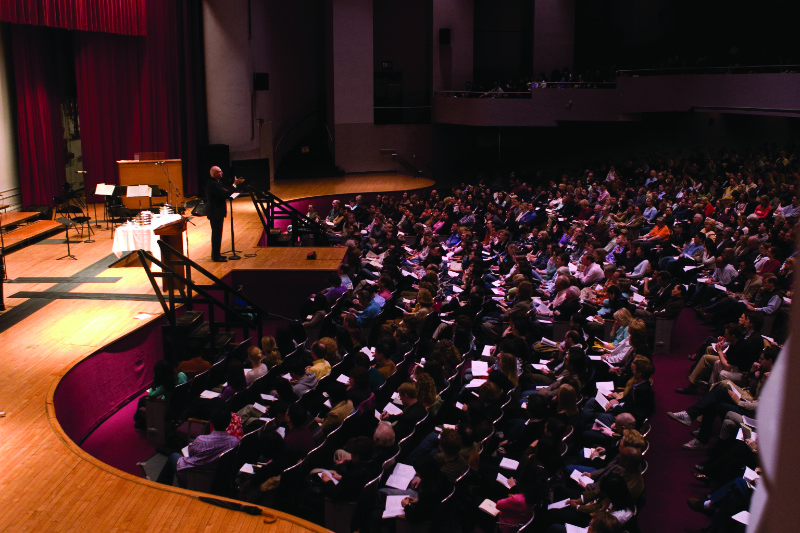
On October 14, Brian and I took the subway to Hunter College for Redeemer Presbyterian Church’s worship service. We walked the long aisle of the large college auditorium to sit in the front. “Gee, it feels like we’re about to listen to a college lecture,” I whispered to Brian. On the stage was a band, and Tom, Michelle’s husband, was seated at the piano. Seeing a familiar face made me feel instantly comfortable. A vibrant energy filled the slightly worn, secular college auditorium, which was packed with young, smartly dressed professionals. I estimated that there were a couple of thousand people there.
Then, a tall, bald gentleman got up to speak. He seemed to be one of the very few people at the church over the age of thirty-five. According to the bulletin, his name was Dr. Timothy Keller. Like the service itself, Dr. Keller was different. He didn’t wear a robe. He didn’t even use a lectern. A simple music stand slightly off to his side held any notes that weren’t in his hand at the moment. He talked about understanding our personal idols—those things we elevate to the status of God and (often unknowingly) worship. “Sin isn’t only doing bad things, it is more fundamentally making good things into ultimate things. Sin is building your life and meaning on anything—even a very good thing—more than on God. Whatever we build our life on will drive us and enslave us. Sin is primarily idolatry.”
Hmmmmm… my desire to be a Broadway performer. My love for New York. My quest to be independent. I’ve made all those “good” things “ultimate” things. My New York City ideals of success were my idols. This totally resonates with me. Lord, I need you. I need YOU. I don’t want all the good things you’ve given me—my husband, my talents, my work ethic, my love for this City—to be ultimate things that are above you. I want you.
I thought back to my cross-stitched sign, whose words had served as my mantra during the years I fought to turn my adolescent dreams of New York City stardom into reality. “Whatever I become” is simply up to YOU now, God. We returned to Redeemer each Sunday, eventually making friends, joining Bible study groups, engaging in church activities, and volunteering with outreach programs. All of these things led us into a deeper relationship with Christ.
Before 9/11, I wanted the city to serve me—to be a backdrop to my success. But things could never be the same after the terror attacks, and now I wanted to serve the city more than I wanted it to serve me.
The events of 9/11 stripped me down and broke apart my sense of self and my view of the world. God built me back up and left both Brian and me in a different place. God literally brought us from the ashes to a new life. A life with “hope and a future,” just like Jeremiah prophesied in 29:11. And I had a new goal related to the city too. Before 9/11, I wanted the city to serve me—to be a backdrop to my success. But things could never be the same after the terror attacks, and now I wanted to serve the city more than I wanted it to serve me.
This goal had grown from a challenge I heard Tim Keller deliver to New York City Christians. He called us to “seek the shalom of the city”—to work to bring peace and healing to the City and its people. And in that sermon, Brian and I realized why we had felt called back to the City, even after all that we experienced on 9/11, even when our apartment was still covered in dust and the streets were still filled with debris. God had brought us back here to “seek shalom” for this changed City. And Brian and I had every intention of doing just that.
